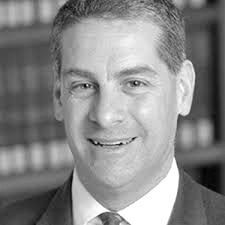Taxes are what we pay for civilized society. – Justice Oliver Wendell Holmes, Jr., 1928
We campaign in poetry, but govern in prose. – Mario Cuomo, 1984
King Solomon occupies a strange, equivocal place in Jewish history. Builder of the Temple, King when Israel reached its greatest height, author of Proverbs and Ecclesiastes, and judge of awesome wisdom, he is admired and lauded.
Yet he seems to pale in comparison with his father. In the last few years, several biographies of David have appeared, but none of his successor. David’s Psalms dominate the liturgy; Solomon’s Proverbs remain hidden. Ecclesiastes only pops up briefly for Shabbat Hol Mamoed Sukkot and is then put back in cold storage.
This week’s Haftarah suggests why:
The Lord gave Solomon wisdom, as He had promised him; and there was peace between Hiram [Phoenician King of Tyre] and Solomon, and the two of them made a treaty. King Solomon imposed forced labor on all Israel; the levy came to 30,000 men. He sent them to Lebanon in shifts of 10,000 a month; they would spend one month in Lebanon and two months at home.
An entente with an idolater is bad enough; but then Solomon imposes labor on Israelite men in a grim evocation of Egyptian slavery. The great Anglican theologian and philologist Frederic Farrar (1831-1903) suggested
It was perhaps from his Egyptian father-in-law that Solomon, to his own cost, learnt the secret of forced labour. In their Egyptian bondage the forefathers of Israel had been fatally familiar with the ugly word mas, the labour wrung from them by hard task-masters.
Little wonder that after Solomon’s death, the people begged for relief from his policies and eventually broke up the kingdom because of them.
The contemporary Protestant theologian Walter Brueggemann goes farther. Brueggemann argues in “>the social theorist Orlando Patterson has argued, constitutes a form of “social death”: the slave submits to total domination from the master, and is deprived of identity, the ability to reproduce, or an independent culture. Instead, Solomon’s policy looks more like conscription, in the case of building the Temple, the underlying purpose is just as compelling as national defense (perhaps even more so).
Taxation also serves as a useful analogy. Modern states would simply tax citizens for public works projects. Solomon did not do that here probably because he couldn’t: ancient Israel lacked a modern case economy. Was a temporary one-third levy exorbitant? Ask tax-cutter George W. Bush, who “> nearly 20 million people are now covered because of health care reform. When my daughter gets sick, a song is good, but medicine is better.
Solomon’s (literally) prosaic virtues do not imply that the prophets, or even Brueggemann, are totally wrong. Instead, two traditions battle: Wisdom and Prophecy. As an ideal type, Prophecy criticizes, holds power to account, demands the fulfillment of ideals. Wisdom grapples with the world as it is, not as we want it to be; it understands the limits of power and recognizes the need for ambiguity; it rejects redemption. Prophecy calls down the sure and certain word of the Lord; for Wisdom, “it is the glory of God to conceal a matter, and the glory of kings to explore a matter.” (Proverbs 25:2).
Although Haftarah’s whole section of Tanach is called Nevi’im, in fact it contains both of these traditions, and Haftarah’s brilliance lies in its capacity to include both. It’s mostly Isaiah and Jeremiah, but lots of Kings and Judges, too. Haftarah must return to prominence precisely because it comprises both Wisdom and Prophecy. We will read and chant Isaiah, and Jeremiah, and Amos, and be inspired. But Solomon should inspire us as well.























 More news and opinions than at a Shabbat dinner, right in your inbox.
More news and opinions than at a Shabbat dinner, right in your inbox.